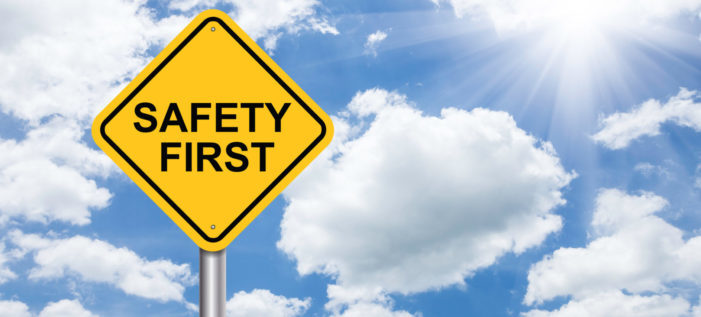Nikos Kefalas, HSSE/QA Manager at LNG Shipmanagement provides his thoughts in risk assessment processes. Mr. Kefalas tries to identify how much risk a company can tolerate, saying that this process is complicated and dynamic, as different operation parameters, have to be taken into account.
During any risk assessment process, we all have a clear goal, at the best of our ability to reduce risks as low as practical possible. Although, we are operating in environment that the risk of tasks or operations is never zero, so one of the most challenging questions we are facing quite often is “how much risk is acceptable?”, “how much risk we can tolerate?”, “what is our risk appetite?”.
[smlsubform prepend=”GET THE SAFETY4SEA IN YOUR INBOX!” showname=false emailtxt=”” emailholder=”Enter your email address” showsubmit=true submittxt=”Submit” jsthanks=false thankyou=”Thank you for subscribing to our mailing list”]
“Tolerable risk is determined by the search for an optimal balance between the ideal of absolute safety and the demands to be met by a product, process or service, and factors such as benefit to the user, suitability for purpose, cost effectiveness and conventions of the society concerned.”
The process of identify the company’s risk tolerance is complicated and also dynamic, and needs a good analysis of different parameter of our operations. From my experience, a key factor in this process is good understanding the bigger picture (interested parties – organizational capacity – resources – internal process – business environment). Also is critical to identify the benefits to be obtained by the amount of risk reduction and the resources needed to achieve those reductions that always become an important factors. Finally we should be able to identify underline elements of our operation that effect the risk appetite.
In the ship management industry two elements that are always have an underlining impact in this risk tolerance levels are: a) we are an industry that the changes and new standards is a constant element of our operation (new trades, ports, customers, regulations etc) and b) the majority of our operation is under a multicultural and international environment. Both elements influence the understanding, perception and tolerance at risk.
- The “acceptable” level of individual or teams risk is may slowly rising as we are exposed to new changing environment that may look familiar or feel confident about the hazards controls. We have used to be resilient in change and new challenges that sometimes makes feel that the risk we can tolerate is higher that may be.
- Most of the individual or teams risk tolerance levels are depending to social, political, education and professional background. Because of that individual or teams have adopted a unique “grey area” or negotiable risk band between the unacceptable and acceptable range of risk.
The two elements above are very dynamic and each organization should always have a clear understanding of the company culture and business environment in order to be able to manage it. But I feel is a key factor in order to define or evaluate our company’s risk tolerance and appetite.
We should recognize that a universal definition of an acceptable risk level cannot be attained because of the many variables. In the end, it is our responsibility to answer the question “How safe is safe enough?” by understanding our people, our business environment and using the company’s values and business ethics.
The views presented hereabove are only those of the author and not necessarily those of SAFETY4SEA and are for information sharing and discussion purposes only.
Above article has been initially published in Nikos Kefalas LinkedIn account and is reproduced here with author’s kind permission.
Written by Nikos Kefalas
 Nikos Kefalas is an experienced HSSE/QA Manager with a history of working in the maritime industry. He is also skilled in Marine Assurance, TMSA compliance, Safety Management, ISO standards and Crisis Management.
Nikos Kefalas is an experienced HSSE/QA Manager with a history of working in the maritime industry. He is also skilled in Marine Assurance, TMSA compliance, Safety Management, ISO standards and Crisis Management.






























































